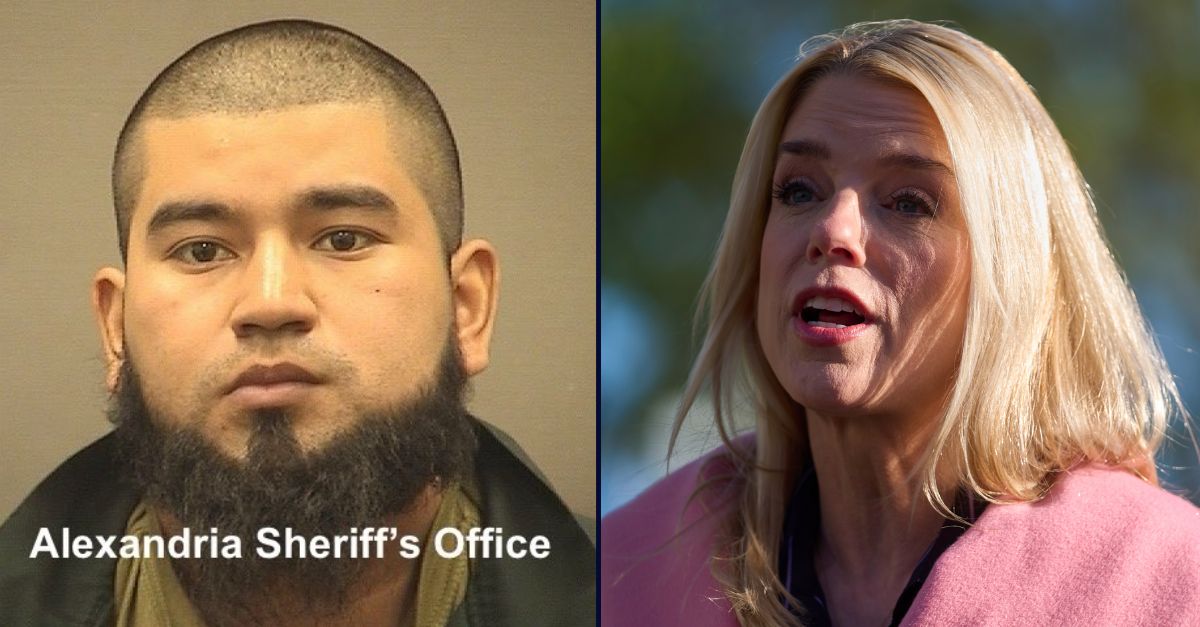Why Is This Alleged MS-13 Leader Resisting the DOJ’s Attempt to Drop His Case?
In a case full of twists, one of the most unexpected moments came not from prosecutors or the courtroom—but from the man accused of being one of the top leaders of MS-13 on the East Coast.
Henrry Josue Villatoro Santos, a 24-year-old Salvadoran man the U.S. government claims is a major figure in the violent international gang, is now fighting a move he should, on paper, welcome: the Justice Department’s decision to drop its criminal charges against him.
Instead of celebrating, Villatoro Santos is saying no—and for a very serious reason.
Arrested in a Virginia Suburb, Accused of Leading a Brutal Gang
Villatoro Santos was arrested on March 27 in Woodbridge, Virginia. According to federal authorities, his apartment was packed with illegal firearms, silencers, and ammunition.
At a press conference shortly after, U.S. Attorney General Pam Bondi described him as a “top member and head of the East Coast” of MS-13, a gang known for brutal violence, murders, and extortion. His arrest was touted as a major victory in the ongoing fight against organized crime.

With that in mind, many were stunned when, just two weeks later, the Department of Justice filed a motion to drop the gun charges—suggesting that instead of going to trial in the U.S., Villatoro Santos would simply be deported.
But the Man They Want to Deport Is Saying “No”
That’s where things took an unexpected turn. Rather than go quietly, Villatoro Santos—through his attorney, Muhammad Elsayed—is actively fighting to stay in the U.S. to face his charges in court.
It’s not about proving innocence or demanding a trial for publicity. The reason is far more serious.
Elsayed argues that deporting his client to El Salvador could amount to a death sentence or indefinite imprisonment without trial. Specifically, he points to the country’s notoriously harsh mega-prison, known as CECOT, where gang suspects are locked away under brutal conditions, sometimes with no charges or access to lawyers.
“Sending him back there, without due process here, could be equivalent to life in prison—or worse,” the lawyer explained.
DOJ’s Sudden Shift Raises Eyebrows
The Justice Department hasn’t said much about why they’re backing away from prosecuting someone they once called a top MS-13 leader.
In court filings, they simply said they wanted to dismiss the charges “without prejudice,” meaning they could technically refile them later. Bondi, in public comments, said Villatoro Santos would be deported instead and added, “He will not be living in our country much longer.”
But that decision has led to confusion, especially since the government had previously made such a strong case about the threat he allegedly posed.
Why drop the charges? Why now? Those questions haven’t been fully answered.
Bigger Than Just One Case
What’s happening in this case touches on something larger: how the U.S. balances justice and immigration, particularly when dealing with international crime. Prosecuting Villatoro Santos would likely be complicated, expensive, and high-profile. Deportation might seem like a faster solution.
But legal experts and civil rights advocates warn that shortcuts—especially in cases involving due process—can set dangerous precedents.
And for Villatoro Santos, the concern is deeply personal. If he’s sent back to El Salvador, his lawyer says he could be detained for years without trial in horrific conditions, all without ever getting a chance to defend himself in a U.S. courtroom.
What Happens Next?
A federal judge will hold a hearing on April 15 to decide whether to grant the DOJ’s motion to dismiss the case. That hearing will also consider the defense’s arguments about due process and safety concerns.
For now, Villatoro Santos remains in custody. And instead of trying to run from the justice system, he’s asking to face it—here, in America, where he says at least he’ll have a chance to be heard.
In a courtroom where defendants usually fight to avoid charges, this case is flipping the script—and raising tough questions about justice, fairness, and the power of the state in unusual times.


Comments are closed, but trackbacks and pingbacks are open.